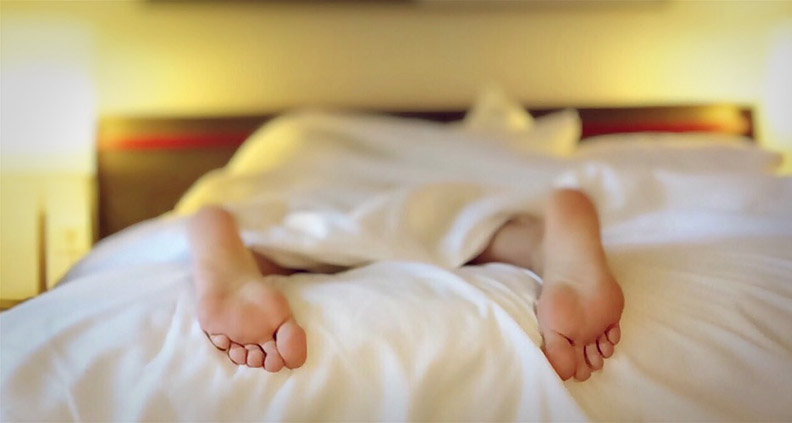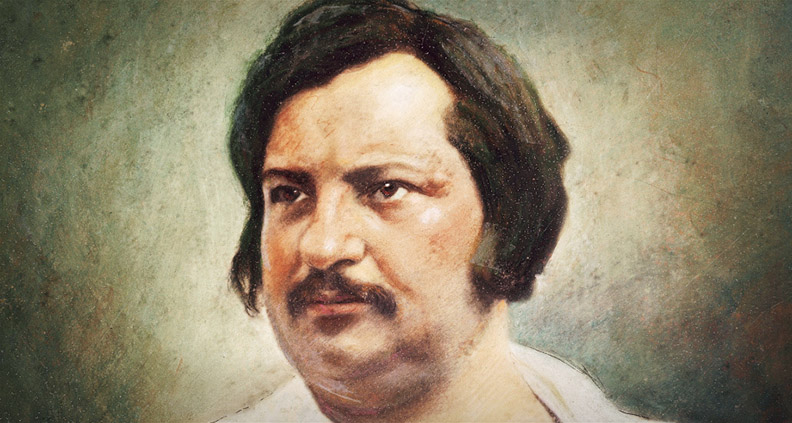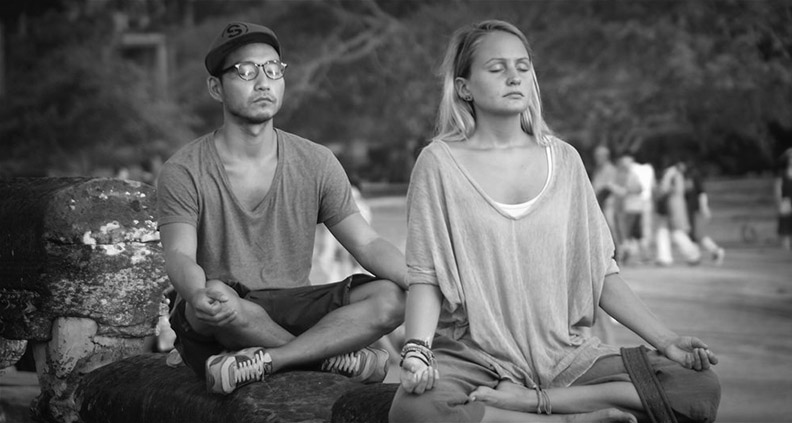This is How We Do It: How Anal Should We Be about Sleep?
Each month in This Is How We Do It, writer Cortney Matz mines her own frustrations to explore issues of productivity and come away with more or less helpful thoughts on how to finally finish up that pesky screenplay, short film or whatever else may be vexing the artistic mind. Warning: this is not an advice column.
***
As we discussed last month, it’s impossible to do everything one wants to with the time one is given. So one must make choices. The typical modern-day creative person’s life is crammed full with day jobs, meetings, pre-production, development, sketching out new ideas, reading the trades, networking… and maaaaaybe (just maybe) having some sort of social life, too. So who on earth has time to sleep?
As Mozart put it, “Schlafen die kleinen Scheiben des Todes, wie ich verachte sie.” Which means: Sleep, those tiny slices of death—how I despise them.
But sleep is important. Probably.

Regardless of experience, we’ve all been told before how much sleep we should get. And we all have difficulty getting it.
Today, I am tired. Between events I’ve hosted this week, 11th-hour inspirations and this weird non-summer heat (not to mention my own chronic issues with sleeping through the night)… it’s beautifully ironic that I’m writing this article on very little sleep.
But it’s still possible for me to get some quality work done today, and even enjoy the process. Here’s why:
I have a complicated relationship with sleep. From the day I was born, I’ve found it next to impossible to take naps. If I’m up until 2am meeting a deadline, I’ll naturally wake up before 7:00 the next day. Once I’m awake, I can’t fall asleep until it’s dark outside again. For me, sleeping past 8am is a magical event that will never be duplicated. But inevitably around 9pm, my eyelids get heavy again. I’m a passionately enthusiastic morning person in a land of night owls.
Now, I used to let my ability or inability to sleep sort of dictate my day. If I woke up feeling refreshed, I expected to be very focused and productive; if I slept fitfully or not enough, I’d drag myself around with very little anticipation for the day ahead.
To combat the inevitable low-sleep days, I used to be hyper-religious about my sleep schedule. I’d make sure I got home by 9:30pm so I could get to bed. I would only go out on certain days of the week. I had a bedtime ritual and tricks at the ready in case I woke up during the night. They worked, sometimes.

And one day, I realized: I was still tired. And bored. And a little angry that I had to live this way and still not feel as refreshed and alert as I kept hoping I would.
So, in true This is How We Do It fashion, I tried an experiment. I said yes to all the things I wanted to do. I didn’t worry how many nights I was out in a given week. I stayed up late when I felt like it. I took on more projects than anyone in their right mind should, just because they inspired me and I liked the people I would be working with. This busy creative got busier. With writing and producing and making music and planning events. My productivity exploded.
I don’t know how much I slept during those initial weeks of this experiment, but I was having a blast. I had so much energy simply because I was enjoying my life and not worrying about how late it was getting.
It’s been over a year since then, and the pendulum has swung back a bit toward center, but I still don’t really get eight hours a night. Not consistently. I’ve learned how to sleep in and take naps when I’m really exhausted (audiobooks seem to be the answer—turn one of those puppies on, close my eyes, and I’m out). But never again will I let my life be so strictly controlled by the hours of 10pm to 6am.
Current model for optimum efficiency: sleep when I can, nap when I must, and don’t take any of it too seriously.
That may seem cavalier, but I challenge you to try it. If there’s anything anthropology teaches us, it’s that no two people like to live (or sleep) exactly the same way. I love this article about the sleep schedules of 27 great minds—they vary wildly.

Novelist and playwright Honoré de Balzac slept from 6pm to 1am then napped between 8am and 9:30am.
Composer Ludwig van Beethoven was a 10pm to 6am kind of guy. Poet John Milton went to bed at 9pm, got up at 4am and napped in the afternoon.
Creative people have been sleeping however, whenever and wherever they can for centuries. So we’re in good company.
Obviously, some of this will be affected by your relationships and other life commitments. If work starts at 9am, you’ll have to find a way to accommodate that. But I urge all of you creative, renegade, pioneering people: experiment with what works for you. If your sleep schedule doesn’t match your life, try something else. Here are some suggestions.

Naps: At what time of the day do you find your energy lagging? If you work a day job, see about taking your lunch break then. Find a quiet corner and just put your head down for a bit. Listen to music. Intentionally unplug. See how you feel after a few days of doing this.
Go to Bed Earlier: This may be, “well, duh,” fodder, but I’m talking really early. 6pm. Sunset. As soon as you can realistically do it. Yes, you will wake up earlier. Maybe that’s okay—try it and see.
Go to Bed Later: If you’re just hitting your stride at 8pm, ride that wave and see where it takes you. I’ve heard so many creatives lament their good intentions, forcing a 10pm bedtime only to stare at the ceiling until midnight. Do yourself a favor—go to bed at midnight.
Sleep In: It happens to everyone. The trash truck comes, the neighbor’s baby cries, someone else’s alarm clock goes off… and boom! We’re awake too early. If it happens, it happens, but try not to get sucked into the internet as a false luxury. Give yourself at least 20 minutes of non-electronic quiet time in case you are able to drop off again.
Meditate: I hold a lot of tension in my muscles, and meditation can be a very practical way to let it go. If you’re having trouble falling asleep, try focusing on your breath— really getting a good inhale/exhale going on. Pay attention to where you’re tense and relax it (my neck and shoulders are common culprits). If your thoughts are racing, write them down.
Enjoy Your Life: The best advice for creativity and productivity. Have fun and go with it.
To learn more about Film Independent, subscribe to our YouTube channel or follow us on Twitter and Facebook. To learn how to become a Member of Film Independent, just click here.
